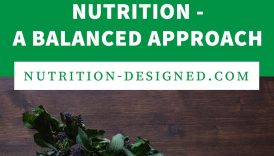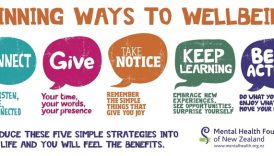The Ultimate Guide to Choosing the Best Supplements for a Healthy Lifestyle

Understanding the Importance of Supplements
Benefits of Taking Supplements
Supplements can play a significant role in enhancing overall health and wellness. Many individuals find that their diets may not provide enough essential nutrients due to busy lifestyles or dietary restrictions. The benefits of incorporating supplements can include:
- The Ultimate Guide to Choosing the Best Supplements for a Healthy Lifestyle
- Understanding the Importance of Supplements
- Benefits of Taking Supplements
- Common Types of Supplements
- Factors to Consider When Choosing Supplements
- Health Goals and Needs
- Quality and Purity of Ingredients
- Different Forms of Supplements
- Capsules vs. Tablets
- Liquid vs. Powder
- Supplement Regulations and Safety
- FDA Regulations
- Third-Party Testing and Certifications
- Where to Buy Quality Supplements
- Online Retailers
- Health Food Stores
- Consulting with Healthcare Professionals
- Doctor's Recommendation
- Nutritionist or Dietitian Advice
- Understanding Supplement Labels
- Reading Ingredient Lists
- Interpreting Dosage Information
- Avoiding Common Pitfalls
- Overuse of Supplements
- Interactions with Medications
- Tips for Incorporating Supplements into Your Routine
- Establishing a Routine
- Tracking Your Progress
- Improved Nutritional Intake: Supplements can fill the gaps where one’s diet may fall short, such as vitamin D during winters or omega-3 fatty acids when fish consumption is low.
- Enhanced Energy Levels: Vitamins like B12 are known to help boost energy, vital for those leading hectic lives.
- Support for Immune Function: Nutrients like vitamin C and zinc can fortify the immune system, especially during flu season.
For instance, a friend of mine struggled with fatigue until she started taking daily iron supplements, and she noticed a marked improvement in her energy levels.
Common Types of Supplements
Navigating the world of supplements can be overwhelming, given the variety available. Here are some common types:
- Vitamins: Essential for various bodily functions; include A, C, D, and the B-complex group.
- Minerals: Such as calcium, magnesium, and iron, which are vital for bone health and metabolic processes.
- Herbal Supplements: Like echinacea or ginseng, often used for their potential health benefits.
- Protein Powders: A popular choice for those looking to muscle up or supplement their protein intake.
Understanding these types can empower individuals to make informed choices catered to their specific health needs.
Factors to Consider When Choosing Supplements
Health Goals and Needs
When it comes to selecting the right supplements, it’s crucial to first assess personal health goals and needs. Are you aiming to boost immunity, enhance athletic performance, or perhaps improve skin health? Understanding your objectives will guide your choices effectively.
- Identify Specific Goals: Whether you want to lose weight, gain muscle, or simply support overall wellness, each goal may require different supplements.
- Consultation is Key: Speaking with a healthcare professional can help clarify which supplements align with personal health needs.
For example, a colleague of mine aiming to build muscle focused on protein supplements and branched-chain amino acids, which complemented her workout regimen.
Quality and Purity of Ingredients
Quality matters when it comes to supplements. Not all products on the market guarantee the purity and potency of their ingredients. Here’s what to consider:
- Check Labels: Look for products that specify the source and dosage of each ingredient.
- Certifications: Third-party testing can assure quality. Certifications from organizations like NSF International or USP are a good sign.
Choosing high-quality supplements not only maximizes the benefits but also minimizes the risk of unwanted side effects.
Different Forms of Supplements
Capsules vs. Tablets
When navigating the supplement aisles, one of the first decisions involves the form: capsules or tablets. While both serve the purpose of delivering nutrients, they have different experiences and benefits.
- Capsules: These tend to be easier to swallow and can be absorbed more readily by the body. They often contain powders or oils and may have a quicker onset of effects.
- Tablets: Usually more compact and longer-lasting, tablets might require more digestion time for the body to break down. They’re often more cost-effective and can handle larger doses.
A friend shared that switching from tablets to capsules helped ease her gastrointestinal discomfort during the initial phase of supplementing.
Liquid vs. Powder
Another choice lies between liquid and powder forms:
- Liquid Supplements: These are absorbed quickly and can be a good option for those with difficulty swallowing pills. They often come in flavored varieties, making them pleasant for those who dislike the taste of certain vitamins.
- Powder Supplements: These are versatile, as they can be mixed into smoothies, shakes, or even yogurt. They allow for easier customization of doses based on individual needs.
Ultimately, the choice largely depends on personal preference and lifestyle. Mixing up formats can also keep the supplement routine engaging!
Supplement Regulations and Safety
FDA Regulations
When venturing into the world of supplements, understanding their regulations is crucial for ensuring safety and efficacy. The U.S. Food and Drug Administration (FDA) plays a role in this. However, it’s essential to note that supplements are classified differently than prescription drugs.
- Minimal Pre-Market Regulation: Unlike pharmaceuticals, dietary supplements don’t require FDA approval before hitting the shelves. This can raise concerns about quality.
- Labeling Standards: The FDA mandates that supplement labels provide accurate information regarding ingredients and dosage. However, this relies on the manufacturer to adhere to standards.
A personal example: when my family switched to a new multivitamin, I was relieved to find it’s FDA-registered, ensuring it adhered to basic safety norms.
Third-Party Testing and Certifications
To further ensure supplement safety, look for third-party testing and certifications. This means an independent organization has verified the product’s contents.
- Why It Matters: Third-party testing can confirm the potency and purity of the ingredients listed on the label, reducing the risk of contamination or mislabeling.
- Recognizable Certifications: Look for seals from organizations like NSF International, ConsumerLab, or United States Pharmacopeia (USP).
These certifications add an extra layer of security, providing peace of mind that what you’re taking aligns with your health goals.
Where to Buy Quality Supplements
Online Retailers
In today’s digital age, online retailers have become a popular avenue for purchasing supplements. They offer a convenient way to browse a vast selection and often provide detailed product information. However, it’s crucial to approach online shopping with caution.
- Reputable Websites: Stick to well-known sites like Amazon, iHerb, or the official websites of established brands.
- Customer Reviews: Reading reviews helps gauge product effectiveness and quality. It’s reassuring to see feedback from real users, which can guide decisions.
- Price Comparisons: Online shopping allows for effortless price comparisons, ensuring you get the best deals without compromising quality.
A friend of mine swears by an online retailer where she routinely orders her supplements, appreciating the user-friendly experience.
Health Food Stores
For those who prefer a hands-on approach, health food stores can be an excellent option. These stores often have knowledgeable staff who can provide recommendations based on individual needs.
- In-Person Assistance: Store employees usually have training in nutrition, making them valuable resources for finding the right products.
- Quality Assurance: Local health food stores often curate their selections, focusing on high-quality brands.
Shopping at these stores allows for a more personalized experience, which can be helpful when selecting supplements tailored to your health goals.
Consulting with Healthcare Professionals
Doctor’s Recommendation
When considering supplements, consulting with a healthcare professional, like your doctor, can be a game-changer. Doctors can provide valuable insights based on a patient’s specific health conditions and medical history.
- Customized Guidance: A doctor can help identify which supplements may address health issues, whether it’s iron for anemia or vitamin D for bone health.
- Monitoring Interactions: They can also check for potential interactions with any medications currently being taken, safeguarding against unfavorable side effects.
For instance, after discussing her fatigue with her doctor, a family member received targeted recommendations that included iron and B-complex vitamins, leading to noticeable improvements.
Nutritionist or Dietitian Advice
Nutritionists and dietitians specialize in food and nutrition matters, offering a different layer of expertise.
- Holistic Assessments: They can evaluate dietary habits and recommend supplements that align with nutritional gaps or goals, such as weight loss or muscle gain.
- Meal Planning: In addition to supplements, they often provide meal planning strategies to enhance overall health.
A close friend benefited greatly from a nutritionist’s guidance; they helped her navigate the world of supplements while optimizing her diet to fuel her workouts effectively. Consulting these professionals ensures one makes informed decisions tailored to individual needs.
Understanding Supplement Labels
Reading Ingredient Lists
Navigating supplement labels effectively is essential for making informed decisions. The ingredient list can tell you a lot about the quality of the product. Here’s how to break it down:
- Order of Ingredients: Ingredients are typically listed in descending order by weight. If you’re looking for a specific nutrient, like turmeric or omega-3 fatty acids, it should be among the top ingredients.
- Additives and Fillers: Be cautious of artificial additives, fillers, or allergens you might want to avoid. Look for supplements that prioritize natural ingredients.
A personal experience: I once overlooked a supplement that contained gluten, which I try to avoid. Checking the ingredient list helped me steer clear of unwanted surprises.
Interpreting Dosage Information
Understanding the dosage is equally crucial. The bottle usually provides guidance, but knowing how to interpret it can help:
- Suggested Serving Size: This indicates how much of the supplement to take and can vary greatly from one product to another.
- Daily Value Percentages: These figures help you understand how much of a nutrient you’re getting compared to daily recommended values.
When I started taking vitamin C, I learned to follow the suggested dosage to maximize benefits without overloading my system. Properly understanding labels empowers you to choose supplements that genuinely support your health journey.
Avoiding Common Pitfalls
Overuse of Supplements
While supplements can be beneficial, it’s crucial to avoid the common pitfall of overuse. Sometimes, individuals may think that taking more will yield quicker results, but this isn’t the case.
- Tolerance and Side Effects: Excessive intake can lead to tolerance or adverse effects. For instance, too much vitamin A can be toxic and lead to serious health issues.
- Balanced Approach: It’s essential to remember that supplements should complement a well-rounded diet, not replace it. Keeping doses within recommended limits helps ensure safety.
A friend learned this lesson the hard way; after doubling her vitamin D intake, she experienced headaches and nausea, prompting her to reassess her usage.
Interactions with Medications
Another pitfall to be wary of involves interactions between supplements and medications. Many might assume that supplements are harmless, yet they can affect how medications work.
- Consult Your Doctor: Always discuss any supplements with your healthcare provider, especially if you’re on prescription medications.
- Research and Awareness: Some common supplements, like St. John’s Wort, are known to interact with various medications, lowering their efficacy.
Understanding these issues can prevent unwanted complications and promote a safer, more effective supplementation journey.
Tips for Incorporating Supplements into Your Routine
Establishing a Routine
Incorporating supplements into your daily regimen can enhance your health and wellness journey. The key is to establish a routine that works for you.
- Choose a Consistent Time: Taking supplements at the same time every day creates a habit. For instance, some people find it helpful to take their vitamins with breakfast or before bed.
- Use Reminder Tools: Setting phone alarms or using pill organizers can help keep you on track, ensuring you don’t forget daily doses.
Personally, I’ve found that placing my supplements next to my morning coffee not only serves as a reminder but also makes it an effortless part of my routine.
Tracking Your Progress
Tracking your progress is equally important. Monitoring the effects of supplements can help you determine whether they’re beneficial or if adjustments are needed.
- Keep a Journal: Documenting changes in energy levels, mood, or overall health can provide insights into what’s working.
- Regular Check-ins: Consider scheduling regular check-ins with your healthcare provider to discuss your findings and adjust your supplementation as necessary.
By integrating these tips, you can create a sustainable supplement routine that supports your health goals effectively.





